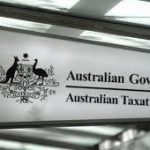The proposed 12 month amnesty from 24 May 2018 to 23 May 2019 for employers to lodge superannuation guarantee charge statements for outstanding superannuation has still yet to pass parliament and is unlikely to do so to prior the election being called. Under the amnesty employers who voluntarily reported late superannuation payments would:
-
- avoid penalties;
- avoid $20 administration fee per employee; and
- receive a tax deduction for the catch-up superannuation payments
After the amnesty, a 100% penalty would apply to employers who could have come forward during the amnesty, but did not.
Labour does not support the policy and has blocked the bill from passing to date. Employers are unlikely to receive any breaks in relation to unpaid superannuation under a Labour Government.
Although the amnesty has not passed, it is still recommended that employers with unpaid superannuation voluntarily report this to the ATO. Failing to voluntarily report late superannuation payments could result in significant penalties by the ATO.
Finding the cash to pay the outstanding superannuation in one go may seem like an impossible task, however, doing nothing will result in the bill continuing to grow as a result of interest and potential ATO penalties. Once all the superannuation guarantee forms are lodged, the debt is consolidated into one account with the ATO. Employers are generally able to negotiate a payment plan with the ATO to pay the outstanding amounts.
From 1 July 2019, it is going to be essential that employers pay their superannuation on time every quarter! Currently the ATO is only able to follow up outstanding superannuation when they receive complaints from employees. From 1 July 2019, with the commencement of single touch payroll for all businesses, the ATO will have the data to enable them to track which employers have paid their superannuation on time and which have not. They will no longer need to wait for a complaint to commence a review or audit of your superannuation obligations.



